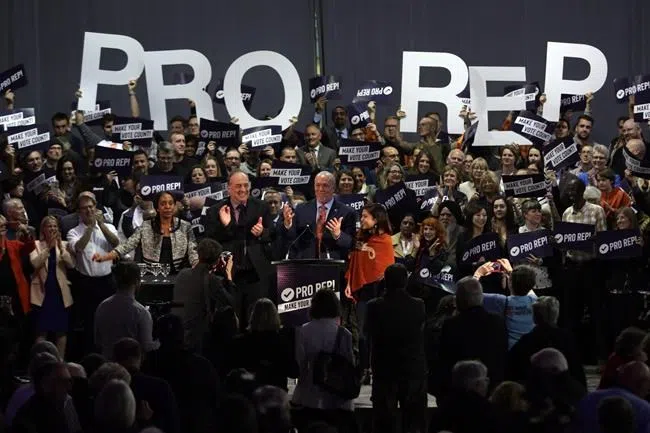
Fewer than half of ballots returned so far in B.C.’s electoral reform referendum
VANCOUVER — An advocate for maintaining British Columbia’s electoral system as it is questions whether residents really care about reform, given voter turnout figures released on the final day of the referendum campaign.
Elections BC said it had received 41 per cent of eligible ballots by Friday morning in the referendum, which asks voters whether they would prefer to keep the existing first-past-the-post system or move to a form of proportional representation.
Ballots could be returned by mail or in person and those received before a 4:30 p.m. deadline on Friday will be counted.
“Forty-one per cent indicates to me that most British Columbians really don’t find proportional representation or our electoral system an extremely important topic,” said Bill Tieleman, Vote No spokesman, adding it’s likely that the turnout will remain lower than two previous referendums in 2005 and 2009.
